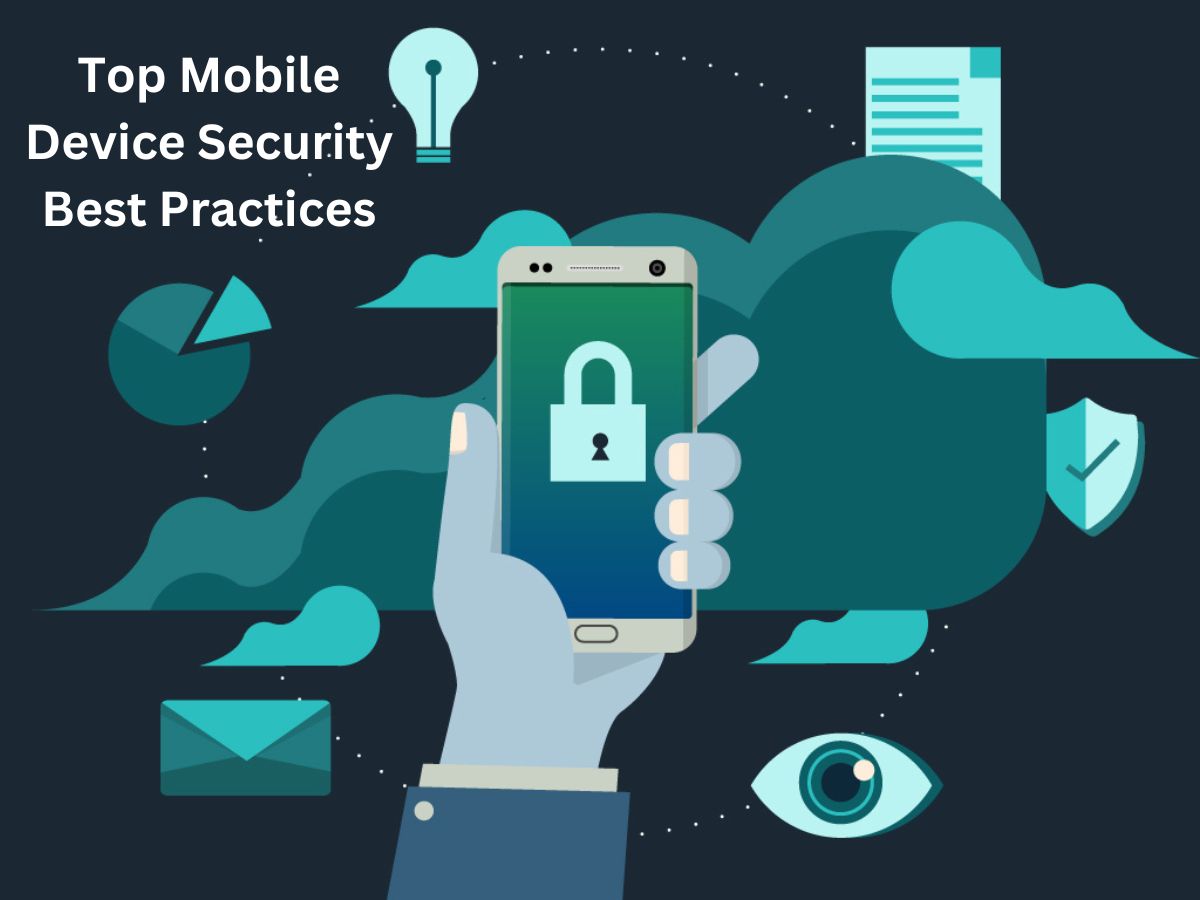Top Mobile Device Security Best Practices To Keep Your Data Safe

Mobile devices are now a necessary component of our lives in the digital age. Our smartphones and tablets have a wealth of useful information, from handling sensitive data to accessing personal information. To defend oneself from online attacks, it is essential to ensure the security of this data. In this article, we’ll look at some of the best practices to secure mobile devices.
Shield Your Mobile Devices: Essential Best Practices for Maximum Security
Enable fingerprint authentication and create strong passwords
Strong passwords should be your primary line of defense when it comes to safeguarding the device you are using. Choose intricate combinations of letters, numbers, and symbols rather than simple ones like “123456” or “password.” Enable biometric identification features like face or fingerprint recognition as well. By adding a layer of security that is specific to you, biometrics make it more difficult for illegal access.
Update your operating system and apps
The operating system (OS) and software on your mobile device should be updated often to preserve security. Updates that fix security flaws and address vulnerabilities are often released by developers. Maintaining the most recent security features and updates on your OS and apps lowers your risk of being exploited by hackers.
Install an App for Dependable Mobile Security
It’s extremely important to give your mobile device an additional level of security. Install a trustworthy smartphone security app that includes tools for phishing defense, malware detection, and anti-theft protection. These applications can check your device for potential dangers, warn you about dangerous websites, and even assist you in finding your lost or stolen device.
Exercise Caution When Downloading Apps
When installing apps on your mobile device, exercise caution. Be sure to only download apps from reputable sites, such as the Apple App Store or Google Play Store. Before installing an app, read reviews and look over its permissions. Be cautious when granting permissions that aren’t necessary because certain apps may ask for inappropriate access to your personal information.
Employ secure wireless networks
Although they might be useful, public Wi-Fi networks often present security issues. When using unsafe Wi-Fi networks, avoid accessing confidential data or making financial transactions. Consider utilizing a virtual private network (VPN) to encrypt your connection and keep your data secure if you must use public Wi-Fi.
Make remote wiping and data backup available
Enabling remote wiping and data backup set can save your life in the awful scenario that your mobile device is lost or stolen. By remotely wiping your device, you can remove all of the data on it and stop illegal access. By regularly backing up your data, you can be sure that even if your device is compromised, you can quickly transfer your crucial files and data to a new one.
What are some mobile device security best practices for business?
- Set up a strong security policy: Create an effective usage policy by outlining guidelines for appropriate use and establishing consequences for violations before providing tablets or smartphones to your workers. Your staff members need to be informed about the threats to mobile device security and the steps they can take to lessen those threats. They ought to be aware that the first line of protection against cybercrime is themselves.
- Set up only business programs: Your team members may be able to install personal apps with the help of simple download policies. Despite the fact that downloading these programs might seem innocent, they are notorious for their damaging advertising codes and numerous other dangers.
- MDM (mobile device management software) incorporation: You may want to link with a trustworthy MDM for even greater security. It’s a great method to keep your team members’ mobile devices well-secured while still keeping personal and professional information separate.
- Blacklisting and whitelisting: Employee mistakes can expose your business to a variety of hazards. For instance, a team member might download a harmful program without realizing it, allowing hackers to steal data from their mobile devices.
It’s a tragedy screaming to take place to merely secure your desktop and laptop PCs. Still, it’s possible for your staff to share critical information via email and mobile devices. So, your main concern should be to protect them from online thieves. To essentially eliminate data theft from your team’s smartphones and tablets, create a stringent usage policy and adhere to other suggested best practices.
Get in contact with us right away on how we can help you with mobile device management if you’re worried about the security of your mobile devices.







